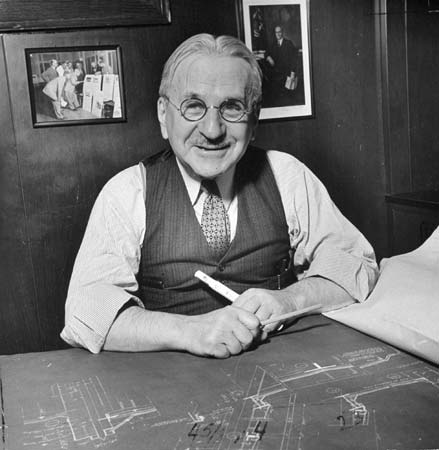
Albert Kahn
March 21, 1869 – December 8, 1942
Albert Kahn was the foremost American industrial architect of his day. He is sometimes called the architect of Detroit. In 1943, the Franklin Institute awarded him the Frank P. Brown Medal posthumously.
Kahn was born to a Jewish family on March 21, 1869 in Rhaunen, Kingdom of Prussia. Kahn came to Detroit in 1880, at the age of 11. His father Joseph was trained as a rabbi; his mother Rosalie had a talent for the visual arts and music. As a teenager, he got a job at the architectural firm of Mason and Rice. Kahn won a year's scholarship to study abroad in Europe, where he toured with another young architecture student, Henry Bacon, who would later design the Lincoln Memorial in Washington, D.C..
In 1895, he founded the architectural firm Albert Kahn Associates.[4] Together with his younger brother Julius, he developed a new style of construction where reinforced concrete replaced wood in factory walls, roofs, and supports. This gave better fire protection and allowed large volumes of unobstructed interior. Packard Motor Car Company's factory, designed in 1903, was the first development of this principle.






